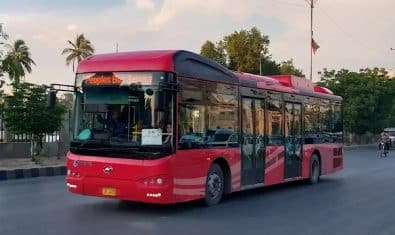The Federal Board of Revenue’s (FBR) Member Audit has declared that the audit selection process through computer balloting based on certain parameters for tax year 2011 was transparent in accordance with law.
In this regard, the FBR Member Audit issued an order on Friday after a long litigation between the taxpayers and the FBR at the level of higher courts. The FBR Member Audit would dispose of all such cases which were selected for audit in 2011 and went into litigation for many years.
According to the order of the FBR Member Audit, in view of said discussion including current proceedings, and the available record shows that the whole audit selection process has been made justly, fairly and transparently in accordance with law. Hence are not ultra vires of the Constitution or law and procedure.
Having considered the arguments of the learned counsels for the parties, departmental representatives and examination of the record of the cases as mandated by the Lahore High Court, Lahore and by virtue of jurisdiction conferred upon to the Member (Audit) under the provision of 214C of the Income Tax Ordinance 2001, 72B of Sales Tax Act, 1990 and 42B of Federal Excise Act, 2005 for selection of audit cases by the Board, the representations mentioned above emanating from Lahore High Court’s order dated 31-10-2023 in the case of W.P. No. 15473 of 2016 titled M/s JDW Sugar Mills Limited vs. FOP, etc. are disposed of in the manner and to the extent indicated above.
A brief description of the facts leading up to the Judgment of Lahore High Court is that for the Tax Year 2011, FBR selected cases for audit through computer balloting on the basis of certain parameters under Section 214C of the Income Tax Ordinance, 2001 and under parallel provisions of Sales Tax Act, 1990 and Federal Excise Act, 2005. This selection was challenged by taxpayers before the Lahore High Court.
The court set aside the selection of cases for audit for Tax Year 2011 with the direction that FBR should initiate the process of selection for audits afresh, by framing separate sets of parameters for each tax type.
Accordingly, the selection of audit for the Tax Year 2011 was done afresh under the Court’s guidelines by the FBR through Computer Ballots on the basis of specified parameters.
In compliance with the court’s decision, the petitioners approached the Review Panels, who disposed of the applications. Not satisfied with the decisions of the Review Panels, the selection was again challenged before the Lahore High Court.
The court referred the matter back to FBR in the case of M/s JDW Sugar Mills Ltd vs. Federation of Pakistan, etc. with the directions that FBR may constitute a High Powered Audit Commission for the resolution of disputes regarding the selection of audit cases.
On the basis of above findings, the “High Powered Commission” decided that to maintain uniformity and to ensure non-discrimination amongst taxpayers who were selected for audit for Tax Year 2011, the Audit Policy should apply equally to all such cases including those specified in the LHC Judgment dated March 13, 2014, in W.P. 19084/13 and all cases be audited accordingly.
Being aggrieved with the decision of the “High Powered Commission”, M/s Defense Housing Authority and others filed petitions before the LHC. After listening to the views of both parties, the court issued directions as to Member Taxpayer Audit (TPA) in person.
In compliance with the directions of LHC referred, letters were issued to all the petitioners to file their representations before Member (Audit). Resultantly, certain taxpayers filed their representations afresh.
Furthermore, the Supreme Court in its Judgment reported as 2018 PTD 1444 regarding devising an Audit Policy has clearly held that the power to select for audit through random or parametric balloting is provided under the law.
“We have repeatedly held that mere selection for audit does not cause an actionable injury to the taxpayer and we note that the learned Single Judge had proposed certain guidelines for the Board to follow. However, while the guidelines may be useful pointers for the Board, it is not the function of the Courts to devise policies and recommend steps and measures to improve capacity or reduce delays which factors fall within the purview of policy. This is in view of the fact that on the principle of trichotomy of powers which lies at the heart of our Constitution, it is the mandate of the Board to do so. The guidelines provided by the Courts in their judgments may therefore be used as useful pointers towards formulating policies in the future without in any manner encroaching the policy making domain of the executive,” FBR Member Audit added.






















